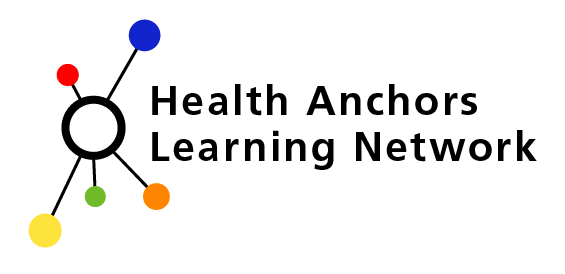Ready, learning set, go! Insights from HALN’s first round of learning sets
HALN is nearly one years old and over the past 12 months we’ve been bringing together thousands of people from across the UK with responsibility for, or an interest in, anchor work.
Our learning sets on anchor frameworks and strategies ran from August to December 2021 - and were so popular that we held three concurrent groups with over 50 participants in total.
Now we can share several themes on engaging in anchor work that emerged during the learning sets, with some reflections from learning set participants themselves.
We’re running our next learning set in May 2022 and you can express your interest here.
This work takes time
Participants came from a range of organisations, such as NHS Trusts and local councils. Many are at the start of their journey, striving to get anchor work on the agenda of their organisations and local health systems. As embedding an anchor mindset is a cultural change, not a set of initiatives, progress can feel slow at times.
The conversation is the work
As an anchor, open communication with your employees, local communities and others across the system is central to the success of initiatives and evolution of a new culture. This is highly relational work. Many participants spoke about the critical value of collecting data about their communities and workforce, and of listening to locals before building a strategy. As well as listening, anchors must keep talking about their work and progress to build support, momentum and energy around this agenda.
For example, the Northern Care Alliance NHS Foundation Trust have incorporated biannual Community of Practice sessions to gather those from across the community who share a concern or passion for the work being done.
Grasp tangible opportunities
Many participants agreed that getting started is a major challenge. Anchor work is diverse, and often focused on tackling persistent inequalities with complex determinants. First, proactively search for opportunities to make a start, showcase progress and then start to embed the anchor mindset into standard processes. HALN has developed a tool to help anchors get started, highlighting six key strategic pillars.
This approach has been taken by the Mid and South Essex NHS Foundation Trust team. They have identified five areas of opportunity for their anchor work, including a key focus on insight and evaluation to continually highlight the progress they are making.
Senior buy-in is key
Participants raised that operational focus and resourcing constraints form the biggest barrier to progression. Leadership support is an essential ingredient for anchor institutions to embed this work and give it the time and investment it needs. As this is a new agenda, organisations have to develop their own culture, foci and parameters - and crucially, maintain confidence in this mission. Most participants are simultaneously focusing on growing the anchor agenda through ‘top down’ and ‘bottom up’ approaches: facilitating conversations and making changes within local communities as well as engaging senior leaders in the work.
The West Yorkshire & Harrogate Health Care Partnership has demonstrated this dual focus by recognising that leadership sponsorship is central to progressing their anchor work but engaging staff through initiatives such as lunch and learn sessions makes it ‘everybody’s issue’ that requires ‘everybody’s input’.
Anchor work above all is about embedding long-term culture change and it was fantastic to hear participants reflect on the value of coming together to pause, share and connect in our Final Showcase. Participants shared with us what they valued most from this Learning Set process.
Intentionality: “being more explicit about things I’ve been implicit about in my work”.
Building confidence and making connections with the range of thinking and practice that is happening across the UK.
Learning from others: networking with like minded colleagues and “sharing frustrations and wins” and “a couple of light bulb moments to help steer my own approach”.
Space to reflect and think strategically within busy schedules; a chance to step back from day to day delivery.
Energy and focus to keep going, despite the barriers inherent in this work.
If you would like to be involved in the next round, beginning in May 2022, express your interest here or email hello@haln.org.uk for more information.
